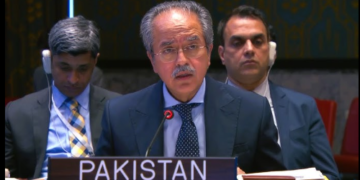LONDON (MNN); The United Kingdom announced on Saturday that refugee status would become temporary and the waiting period for permanent settlement would rise to 20 years, marking one of the most extensive reforms to asylum policy in modern British history.
The Labour government, under pressure from the rising popularity of the Reform UK party, has intensified its stance on immigration, especially regarding illegal small-boat crossings from France. Officials said Britain would draw inspiration from Denmark, whose stringent immigration framework has influenced several European nations but drawn strong criticism from rights organisations.
According to the Home Office, several key changes will be introduced, including the removal of the statutory duty to provide housing and weekly allowances to certain asylum seekers. The policy will apply to those who are able to work but do not, and those who violate the law. The government said taxpayer-funded support would be prioritised for individuals contributing to the economy and local communities.
The Home Office, led by Interior Minister Shabana Mahmood, said refugee protection would now be temporary, subject to regular review, and could be revoked if the person’s home country was considered safe.
In an interview with Sky News, Mahmood noted that unlike other European countries, where refugees often secure permanent status after five years, the UK would now require periodic reviews every two-and-a-half years, with the path to permanent residency extended to two decades.
She said more details, including planned adjustments to Article 8 of the European Convention on Human Rights — which protects the right to family life — would be announced on Monday. The government insists it wants to remain within the ECHR but believes Article 8 is currently interpreted in a way that obstructs the removal of people who do not qualify to stay.
The tougher policies have drawn backlash. Over 100 British charities urged Mahmood to stop what they termed scapegoating of migrants, warning that such measures fuel racism and violence. Public concern over immigration has risen sharply, overtaking the economy as the top voter priority, according to several polls.
In the year ending March 2025, the UK received 109,343 asylum applications — a 17 percent rise from the previous year and slightly above the country’s 2002 record.
Mahmood said the government would work to expand safe and legal pathways for asylum seekers, stressing that Britain had a responsibility to help those fleeing conflict or persecution.
The Home Office added that the reforms would aim to align with, and in some areas exceed, the standards of Denmark and other European states where refugee status is temporary, support is conditional, and integration is expected.
Under Denmark’s model, asylum seekers receive temporary permits, generally valid for two years, and must reapply upon expiry. They may be repatriated if their home country is judged safe. Denmark also lengthened its pathway to citizenship. The Home Office said the model led to asylum claims dropping to a 40-year low and the deportation of 95 percent of rejected applicants.
However, rights groups say Denmark’s approach creates a hostile environment, weakens refugee protections, and leaves people in extended uncertainty. The Refugee Council said refugees choose the UK because of family links, language familiarity, and existing networks that support their resettlement, not because of asylum policies.









































































